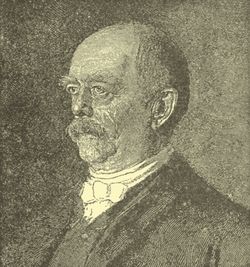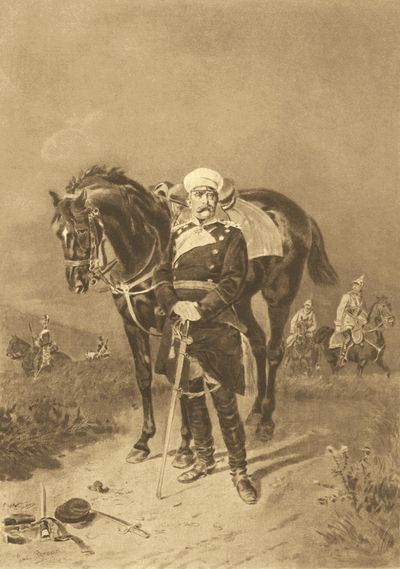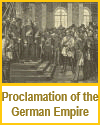 Otto von Bismarck, born on April 1, 1815, in Schönhausen, Prussia, was a towering figure in 19th-century European politics, known for his role in unifying Germany and shaping its early years as a modern nation-state. Bismarck began his political career in the Prussian civil service and quickly rose through the ranks due to his keen intellect and diplomatic acumen.
Otto von Bismarck, born on April 1, 1815, in Schönhausen, Prussia, was a towering figure in 19th-century European politics, known for his role in unifying Germany and shaping its early years as a modern nation-state. Bismarck began his political career in the Prussian civil service and quickly rose through the ranks due to his keen intellect and diplomatic acumen.
 In 1862, King Wilhelm I appointed Bismarck as Prime Minister of Prussia. Bismarck was a staunch advocate of realpolitik, a pragmatic approach to politics focused on practical objectives rather than ideological principles. He believed in strengthening the power of the state through diplomacy and military force when necessary.
In 1862, King Wilhelm I appointed Bismarck as Prime Minister of Prussia. Bismarck was a staunch advocate of realpolitik, a pragmatic approach to politics focused on practical objectives rather than ideological principles. He believed in strengthening the power of the state through diplomacy and military force when necessary.
Bismarck orchestrated three wars that were crucial to German unification. The first was the Danish War in 1864, which resulted in the acquisition of Schleswig and Holstein. The second was the Austro-Prussian War in 1866, where Prussia defeated Austria and established the North German Confederation, excluding Austria from German affairs. The final war was the Franco-Prussian War in 1870-1871, which rallied the southern German states to Prussia's side against a common enemy, leading to the proclamation of the German Empire in 1871, with Wilhelm I as Emperor and Bismarck as Chancellor.
As Chancellor, Bismarck implemented significant domestic policies, including the establishment of the first welfare state with social insurance programs. He also maintained a delicate balance of power in Europe through a complex system of alliances to prevent any one nation from becoming too dominant, thereby preserving peace on the continent.
Bismarck's legacy is that of a master strategist who played a pivotal role in the creation of a unified Germany. He retired in 1890 and died on July 30, 1898, leaving behind a reshaped European political landscape and a powerful, united Germany.
|


 Otto von Bismarck, born on April 1, 1815, in Schönhausen, Prussia, was a towering figure in 19th-century European politics, known for his role in unifying Germany and shaping its early years as a modern nation-state. Bismarck began his political career in the Prussian civil service and quickly rose through the ranks due to his keen intellect and diplomatic acumen.
Otto von Bismarck, born on April 1, 1815, in Schönhausen, Prussia, was a towering figure in 19th-century European politics, known for his role in unifying Germany and shaping its early years as a modern nation-state. Bismarck began his political career in the Prussian civil service and quickly rose through the ranks due to his keen intellect and diplomatic acumen.
 In 1862, King Wilhelm I appointed Bismarck as Prime Minister of Prussia. Bismarck was a staunch advocate of realpolitik, a pragmatic approach to politics focused on practical objectives rather than ideological principles. He believed in strengthening the power of the state through diplomacy and military force when necessary.
In 1862, King Wilhelm I appointed Bismarck as Prime Minister of Prussia. Bismarck was a staunch advocate of realpolitik, a pragmatic approach to politics focused on practical objectives rather than ideological principles. He believed in strengthening the power of the state through diplomacy and military force when necessary.






